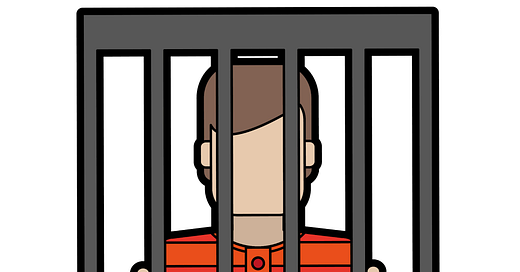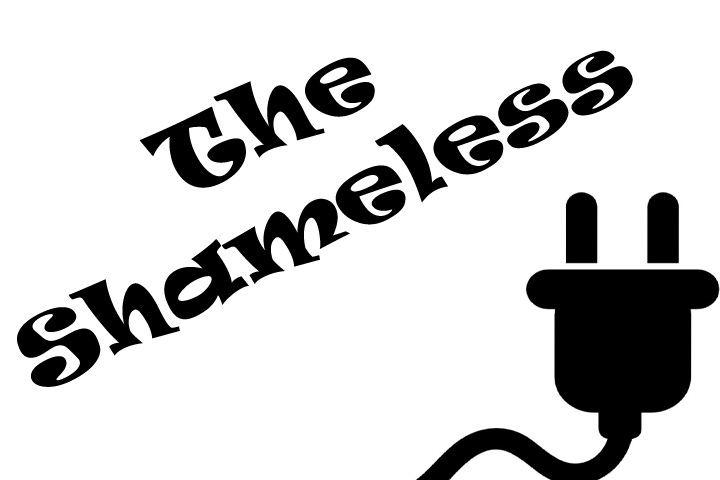Issue #294 Government April 6, 2023
A grand jury decides whether there is an adequate basis for bringing criminal charges against a suspect and, therefore, issues an indictment against them. The criminal charges, evidence, witnesses, and deliberations are sealed and are not available to the public. A grand jury for the federal government is called a “special grand jury.” A grand jury or special grand jury is under the supervision of the relevant district attorney or special prosecutor, who does not actually issue the indictment.
On Tuesday, April 4, 2023, former president Donald J. Trump was arrested, arraigned, and indicted by Alvin Bragg, the District Attorney of the Southern District of New York. The week before, the majority of the 23 members of the grand jury for the case, after months of hearing witness depositions and evaluating other evidence, voted to issue the sealed indictment.
The indictment included 34 felonies against the person now known as "Defendant Trump" as well as a 13-page "Statement of Facts" that further detailed the accused crimes for each of the 34 counts. This is the first time in history that a former president has been indicted. It is important to remember, however, that this indictment is by a state jurisdiction, not a federal one, so a future pardon is not available nor possible.
The prosecutors and defense counsel have until mid-September to present and answer motions, and the next court date isn't until December 4, 2023.
Defendant Trump's attorneys do not want the actual trial to begin until the spring of 2024, and Defendant Trump himself wants the trial pushed out to the fall of 2024. The delays are meant to provide some kind of shield for Trump as he is the presumed Republican candidate for the November 2024 presidential election, and the Republican primaries begin in January 2024.
Defendant Trump believes that he should not be tried and certainly should not be found guilty since he is a candidate now and surely will win back the presidency in 2024.
The official policy (not a rule or law) of the Department of Justice states that indictments and other situations before an actual trial should not be made public 60 days before an election. But does that mean the primary elections, too? Does that policy apply to state prosecutors?
“It depends…” Stay tuned.
Please make sure to view and act on the important information at the end of this article to help support “We Are Speaking.” Thank you!
Trump's Additional Legal Entanglements
As we know, Trump is also facing at least three more state decisions, including a trial starting at the end of April for defamation by E. Jean Carroll, who accused Trump of raping her.
There is also the election interference situation in Fulton County, Georgia, by District Attorney Fani Willis, and the New York Attorney General Letitia James’ $250 million fraud lawsuit against former President Donald Trump and his company with an October 2, 2023, trial date.
There are also two federal cases in the works, headed by DOJ Special Prosecutor Jack Smith: the Mar-a-Lago Florida obstruction of justice case concerning the theft of government records, and the January 6 insurrection case in the District of Columbia.
Indictments and trials for any or all of these cases still could occur in 2023.
Trump has declared that he will continue to campaign even if and when he is indicted for any of these cases.
But if he is convicted of one or more of these felony cases, can he still run for president, and more importantly, can he serve as president as a convicted felon?
The answers are Yes and Yes
According to Article II of the U.S. Constitution, there are only three requirements to run for the presidency and to be president of the United States:
The first constitutional requirement is that the person must be a natural-born citizen of the United States.
The second constitutional requirement is that the person must be at least 35 years old.
The third constitutional requirement is that the president must have been a resident of the United States for at least 14 years.
Donald Trump meets those three constitutional requirements.
The Constitution does not explicitly prohibit a convicted felon from running for president. Therefore, even if a convicted felon meets these requirements, that person can still legally run for president.
There have been a few times when a convicted felon ran for president, although none of the people won their respective elections.
Eugene V. Debs was the Socialist Party candidate for president in 1908, 1912, and 1920. His highest popular vote total came in 1920 when he received about 915,000 votes. He was actually in prison at the time, charged with violation of the 1917 Espionage Act.
In 1988, Lyndon LaRouche ran for president as a Democrat, despite having been convicted of mail fraud and conspiracy.
In 2004, convicted felon and tax protester Irwin Schiff ran for president as a Libertarian.
The President of the United States has the power to grant pardons to convicted felons, which can restore their civil rights and remove some of the legal barriers to running for office. It is constitutionally unclear if a president can pardon himself, and Trump could not be granted a pardon for any state convictions anyway.
Ultimately, the decision to elect a convicted felon as president is up to the American people. Of course, the MAGA Republicans seem inclined to support Trump no matter what.
Only time will tell.
You can always leave any questions in the comments or email us.
This article is free to access for 3 days after publication. Please consider becoming a paid subscriber for $5/month or less to access all of the articles and other benefits.
This is your chance to support everything Keith and Pam do. We appreciate you!
Purchase and download your copy of the “Branding And Marketing For The Rest Of Us” eBook for Independent Authors and Creative and Solo Professionals.
Enroll in one of the 6-course bundles designed especially for you: “Author and Book Marketing” and/or “Essential Creative Marketing.”
Purchase your copies of “Detroit Stories Quarterly” issues.
What else do Keith and Pam do?
Where else can you find us?
Click the link below to learn everything you need to know and review everything we offer for independent writers and creative and solo professionals.








